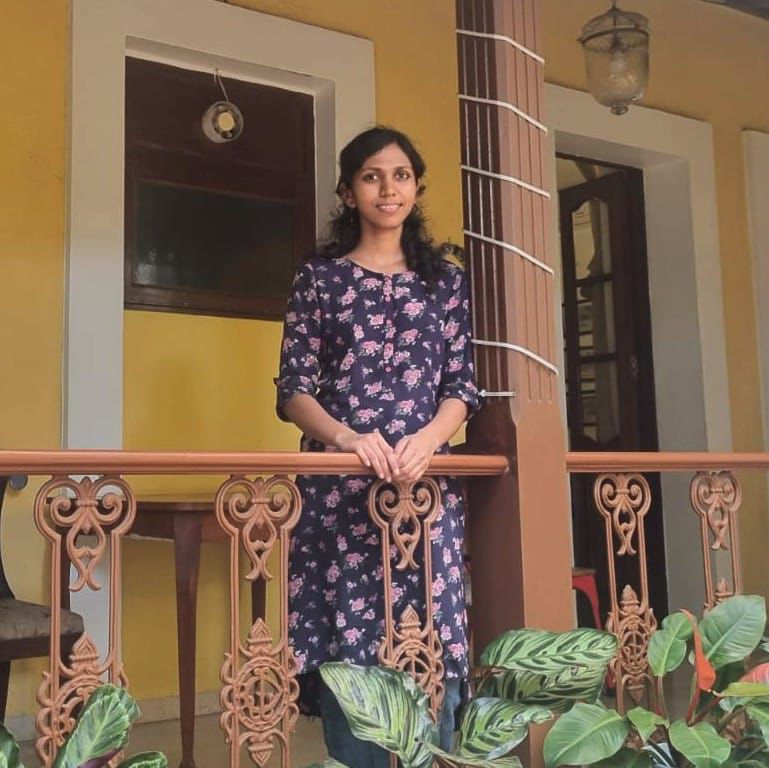1. The Old Coffin - Part 1
A Dark Little Figure
Her eyes are the eyes of the old man
Who is going to die right now.
You can scratch and draw images on her skin,
Anaemic, thin limbs—
She waits as withered flowers wait for the mowers,
A dark little figure in a corner of the park.
Her blue sari is covered with a ragged chadar,
A pair of Ajanta slippers she wears to lure hungry eyes,
Many days she returns home with empty hands,
A few days she buys a meal for Munni and her father.
She tries first to do this and that.
Now settled—
Each evening she waits in the park and
Dreams of better days.
2. The Old Coffin - Part 2
The Old Coffin-Seller
The old coffin seller by the hospital wall,
Keeps some wooden planks and counts his day
And ever ready to serve the mourners of the dead,
So he lies half asleep on one of his planks
And watches the sun and moon and counts the stars,
He is sharp, he is quick,
For whenever he hears a cry
He twists his bones and presses legs to his chest
And merrily croons like a street dog,
Fed after days of starvation spell,
And next, he brushes his eyes
And calmly waits for his prey,
The old man is a master in his trade,
And knows if his friends cry aloud
His days are dark, and if they stand like stones
A ray of hope flickers in his failing eyes,
For forty years he guards his line
And clashes rarely erupt, for race
In his trade has not been stiff yet,
But, of late three shadows
Gather, and keep some funeral cots
By his nose, and he yawns and kills the fly
Pestering his wound, and he thinks
His days will not end in defeat and disgrace,
For he rules over the dealers of the dead—
A galaxy of big boys loiter
In the hospital corridors
And whenever they hear
A heart-wrenching wail,
They run and wait for the mourners of the day,
And they friendly pave the way
For the dear ones of the dead,
And the sad hearts follow the boys’ tender ways
And finally, reach to the desired end—
The old seller is not a fool,
He knows and oversees the rules of the game
His big boys aptly play, and so he pats his boys,
For on them depend his survival feats.
3. The Old Coffin - Part 3
Death of a Grocer
The old grocer has just died
A quiet spring afternoon, a cuckoo
Is cooing from a nearby simul tree,
A woman is wailing leaning against the wall.
Once a month I visit his store,
His skin is a crumpled sheet of paper,
Tall, snub-nosed, bald head, hollow cheeks,
Hazy eyes, but in his drooping days
He has still remnants of the rugged years.
For the last four months, the old man disappeared,
His chair was empty, and pieces of paper on which
He used to scribble rates, dangling from the board as usual.
Four times in four months I asked his boy,
‘Where is your master?’, and he said,
‘Master is ill. He is in bed.’
Today a kirtan party is hired,
A funeral car being readied with wreaths of flowers,
And the old woman is beating her head on the wall.
4. The Old Coffin - Part 4
Ismail’s Sacrifice
“I am here to sacrifice you with my own hands, son,” said Ibrahim,
The grey-haired, bearded, old father with tear-filled eyes,
And the mount Arafat shook in fear and trepidation,
“Ismail, I had a dream of slaughtering you!” Father repeated
So that he would not hear the words himself. Ibrahim stood silent,
Fearful and pale, he lost courage to look into the eyes of his dearest son,
Then Ismail, the most obedient son in history, calmly said,
“Father, do not falter to fulfil Allah’s wish. Allah is merciful!”
Ibrahim gathered courage and stood up, picked the knife
And began to sharpen it with a piece of stone
“Could I do this, my loved son?” He asked himself,
Deeply hurt and shattered within,
“Oh! Hagar, how could I pass Allah’s ordeal
By killing my Ismail?” He dithered first,
But next, determined, he lovingly took Ismail
And asked him to lie on the sand,
Tied his legs and hands, grabbed his hair,
And held his head back to find his carotid artery,
In the name of Almighty Allah,
Ibrahim put the knife to Ismail’s throat
But it did not cut. Oh! This knife!
He stepped back in fear, threw it away it in rage and pain
“Am I not his father? Why is Allah playing with me?” He was burnt within,
Then hurriedly he picked up the knife again,
This time with more courage and strength
Ismail lay like a sacrificial beast, moveless, cowered and crouched.
And when, the father forcefully tried to cut his son.
Lo! A miracle came off, a dumba (ram) suddenly appeared with the message
“Oh! Ibrahim, Allah does not really want you to sacrifice your son.
This dumba is sent to you as his ransom.
You have carried out His decree.
Allah is most merciful!”
5. The Old Coffin - Part 5
Abu Siddik is a bilingual writer, editor, and reviewer who teaches at Plassey College in West Bengal, India. He writes poems, short stories, and critical articles on the struggles and resilience of Indian marginalized communities. His work has been published in various literary magazines and portals, including Muse India, Story Mirror, and Countercurrents. Abu Siddik has authored four poetry books, three short story books, and four critical books. His latest publications include Identity and Belonging: Mapping the Margins (Authorspress, New Delhi) and Banger Musalman: Somaj Pironer Dahan Brittanto (Gangchil, Kolkata). He is also the editor of a Bangla literary portal Chetona. More of his work can be read here at his personal blog https://abusiddik.com/ .



